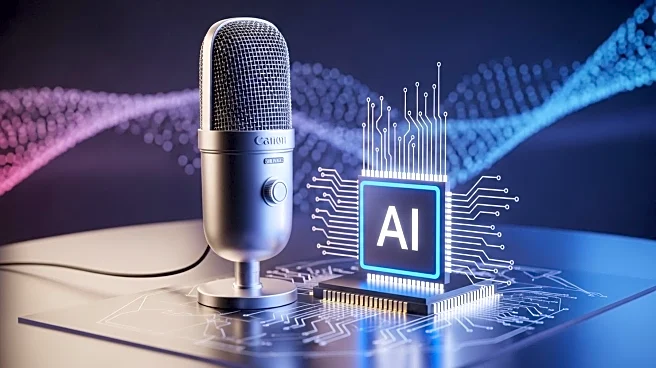What's Happening?
Spotify has announced updates to its AI policy aimed at better identifying AI-generated music and reducing spam on its platform. The company plans to adopt the DDEX standard for labeling AI music in credits, providing detailed information about AI's role in track creation. This move comes in response to the rapid increase in AI-generated music, which has led to concerns about transparency and the dilution of payments to legitimate artists. Spotify has removed 75 million spam tracks over the past year and is implementing a new music spam filter to catch bad actors. The company emphasizes that unauthorized AI voice clones and impersonations are not permitted on its service.
Why It's Important?
The rise of AI-generated music presents challenges for the music industry, including potential impacts on artist royalties and the integrity of music creation. By implementing these measures, Spotify aims to protect artists from fraudulent activities and ensure that AI is used responsibly. The adoption of the DDEX standard for AI disclosures could set a precedent for other streaming services, promoting transparency and trust in the music ecosystem. This initiative is crucial for maintaining fair compensation for artists and preventing the exploitation of AI technology by bad actors.
What's Next?
Spotify plans to gradually roll out its new music spam filter, ensuring it targets the right signals and adapts to emerging schemes. The company will work with distributors to prevent fraudulent uploads to artists' profiles and reduce review wait times for content mismatches. As the DDEX standard develops, Spotify has received commitments from 15 labels and distributors to adopt the technology, signaling a potential industry-wide shift towards AI transparency.
Beyond the Headlines
The ethical implications of AI in music creation are significant, as unauthorized use of AI to clone an artist's voice can undermine their artistry and identity. Spotify's efforts to establish industry standards for AI disclosures may encourage responsible use of AI tools, allowing artists to explore new creative possibilities while safeguarding their rights.











